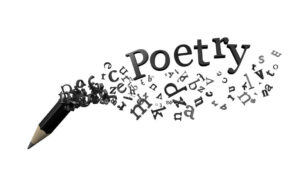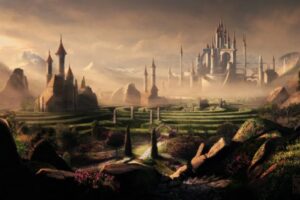Literature is a vast field encompassing various genres, styles, and forms of written expression. Here are some of the main branches of English literature:
Branches of English Literature – POETRY
“A poem is never finished, only abandoned.”
– Paul Valery
Poetry offers a unique and powerful means of communication, inviting readers to engage with language in ways that transcend ordinary prose. Through various cultures and historical periods, poetry has evolved as a distinct form of literary expression. Different cultures have developed their own poetic traditions and forms, often influenced by linguistic, cultural, and artistic factors. The word “poetry” originates from the ancient Greek word “poiesis,” which means “making” or “creating.” In its earliest usage, poetry referred to the act of creating literature or art in general.
Different cultures have developed their own poetic traditions and forms, often influenced by linguistic, cultural, and artistic factors. in ancient Greece, poetry played a central role in cultural and religious life, with epic poems like Homer’s “Iliad” and “Odyssey. Greek poets also developed various forms such as lyric poetry, elegy, and drama. Throughout history, poets have continued to innovate and experiment with language and form, leading to the diverse range of poetic styles and traditions. Sonnets of Shakespeare to the free verse of Walt Whitman and T.S. Eliot, poetry continues to evolve and adapt new cultural and artistic contents.

– DRAMA

Drama refers to a genre of literature, film, or television characterized by conflict, tension, and emotion. In a broader sense, it can also refer to real-life situations or events marked by intense emotions, conflicts, or unexpected developments. In theater, “drama” specifically refers to a form of performance art to portray characters in a story, often with dialogue and actions that explores different themes.
Ancient civilizations, particularly the Greeks, developed drama as a form of art.. In ancient Greek culture, drama was a significant aspect of religious festivals, particularly those honoring the god Dionysus, the god of wine and fertility. The earliest forms of drama in Greece were religious rituals performed by priests, which involved chants, dances, and dramatic enactments. These rituals gradually evolved into more structured forms of theater, with the introduction of actors, dialogue, and storytelling.
The two main forms of ancient Greek drama were tragedy and comedy. Tragedy, which emerged around the 6th century BCE, dealt with serious themes and depicted the downfall of noble characters due to fate or character flaws. Comedy, on the other hand, focused on humorous and satirical elements, often mocking societal conventions and individuals. Greek drama reached its peak during the classical period in the 5th century BCE, with renowned playwrights such as Aeschylus, Sophocles, and Euripides writing influential tragedies. The legacy of Greek drama influenced later theatrical traditions in Rome, Europe, and beyond, shaping the development of theater as an art form over the centuries.
“The ode lives upon the ideal, the epic upon the grandiose, the drama upon the real.
-VICTOR HUGO
Branches of English Literature – FICTION
The author creates fiction, which refers to literature, storytelling, or narrative works, imagined, invented, or otherwise not based on fact. In fiction, authors use their creativity and imagination to craft characters, settings, and plots that may or may not reflect real-life events or people. Fictional works include a wide range of genres, including novels, short stories, plays, and poetry. It often explores themes, emotions, and human experiences.

Furthermore, humans began sharing stories orally in ancient times as a means of entertainment, cultural preservation, and education, thereby tracing the origin of fiction. Additionally, fictional storytelling likely emerged alongside the development of language and communication skills in early human societies. Moreover, myths, legends, and folklore were often interwoven with early forms of fiction, serving to explain natural phenomena, impart moral lessons, and pass down cultural traditions from one generation to the next. Finally, generations passed down these stories orally before they were recorded in written form.
The earliest known written works of fiction come from ancient civilizations such as Mesopotamia, Egypt, Greece, and India. Examples include the ancient Egyptian “Tale of the Shipwrecked Sailor” and the Indian epic “Mahabharata,” which contains fictional narratives and allegorical tales. Greek literature, in particular, introduced various genres of fiction, including epic poetry, drama, and prose fiction. Works such as Homer’s “Iliad” and “Odyssey” and Aesop’s fables exemplify the rich tradition of storytelling in ancient Greece.
– NON-FICTION

Non-fiction refers to literature, writing, or content that presents factual information or accounts about real people, events, or topics. Moreover, non-fiction is based on verifiable facts, research, and evidence, while fiction is imagined or invented by the author. Furthermore, non-fiction works encompass a wide range of genres and formats, including essays, biographies, memoirs, journalism, history books, and all.
One of the earliest forms of non-fiction was oral storytelling, where people passed down factual accounts, histories, and cultural traditions through spoken narratives. Furthermore, these oral traditions evolved over time and served as a means of preserving and transmitting knowledge from one generation to the next. In ancient Greece, the development of philosophy, historiography, and scientific inquiry laid the foundation for many forms of non-fiction writing. Additionally, prominent figures like Leonardo da Vinci, Galileo Galilei, and Isaac Newton contributed to the growth of non-fiction literature through their writings and discoveries.
RELATED PAGES
